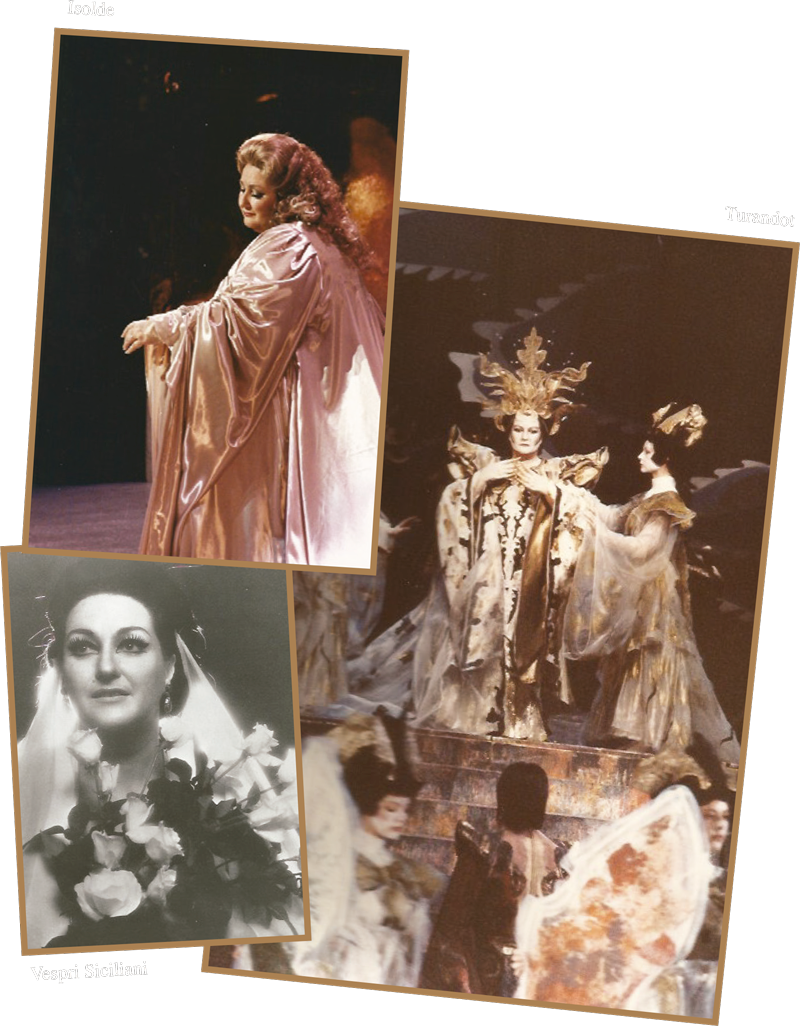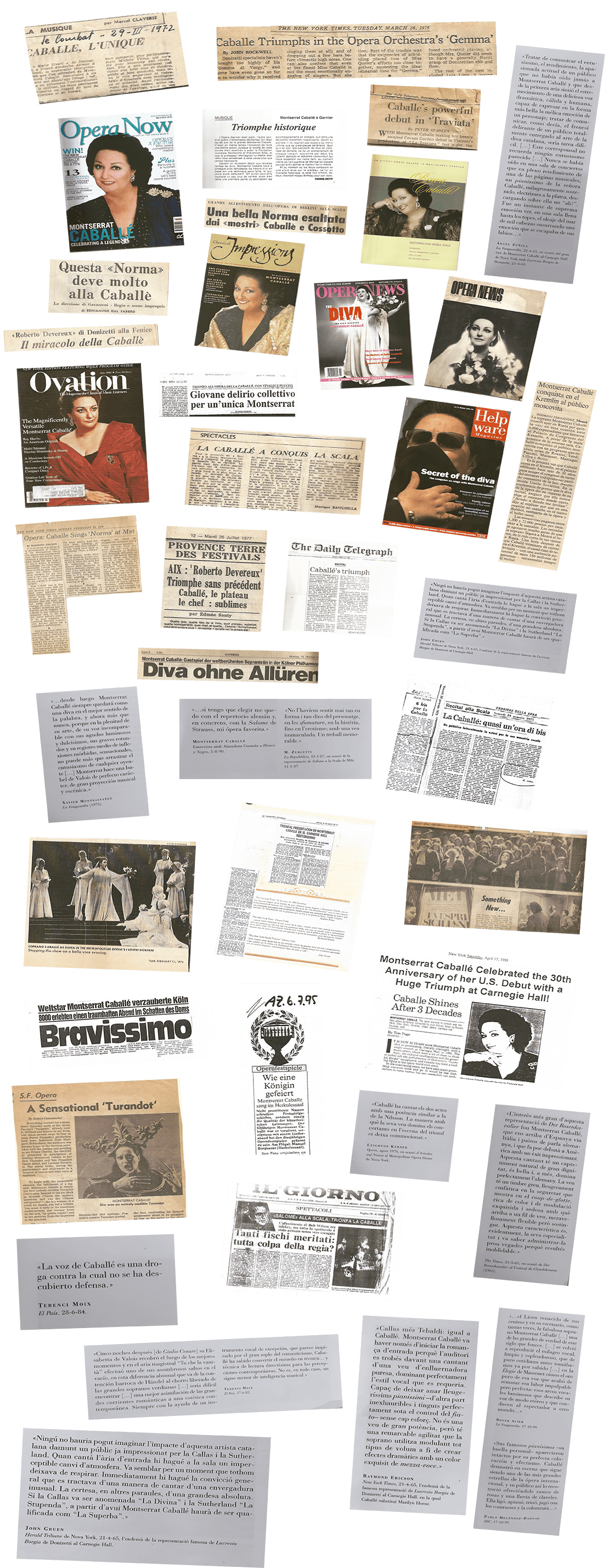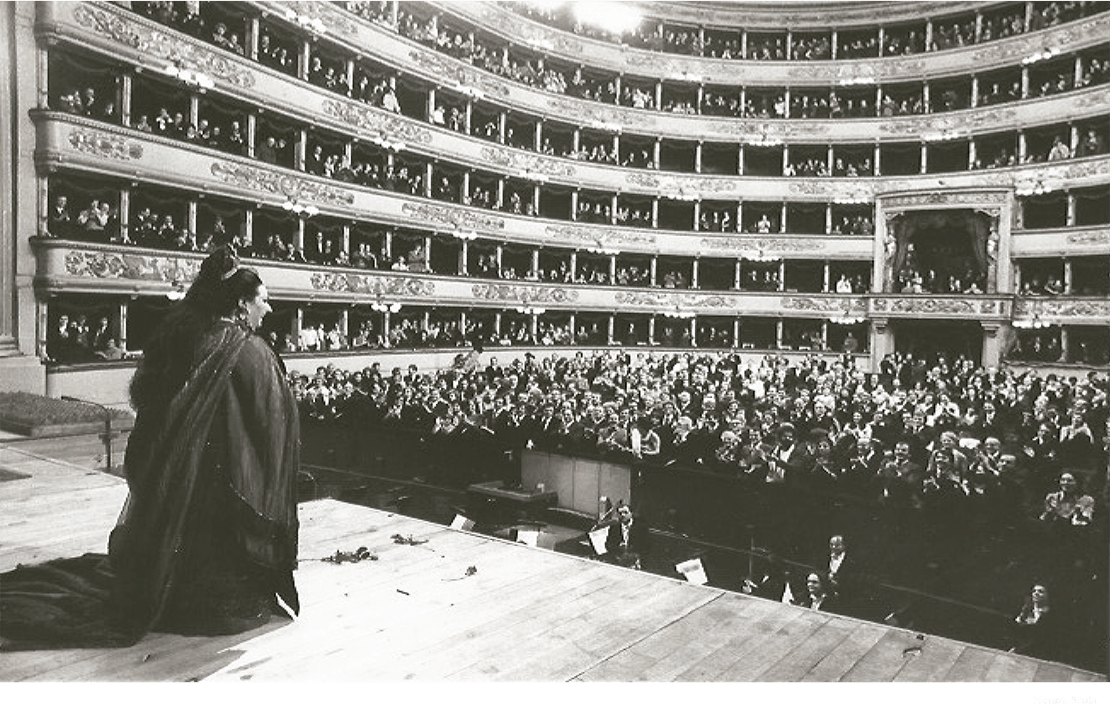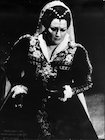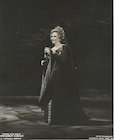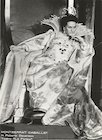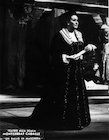Montserrat Caballé
Her international breakthrough came in 1965. She was asked at short notice to learn the title role in Donizetti’s Lucrezia Borgia, which was to be given a concert performance in Carnegie Hall. She was utterly unknown, but after her first aria the astounded New York audience gave her an endless ovation. Press reported the following day:
“No amount of advance publicity could have foretold the extraordinary impact that this stately Goya-esque woman would have on an audience already spoiled by the likes of Callas and Sutherland. When Caballé began her first aria, there was a perceptible change in the atmosphere. It seemed for a moment that everyone had stopped breathing”.
Representatives of the major operatic and recording companies were in the audience that evening, and overnight her international career was launched.
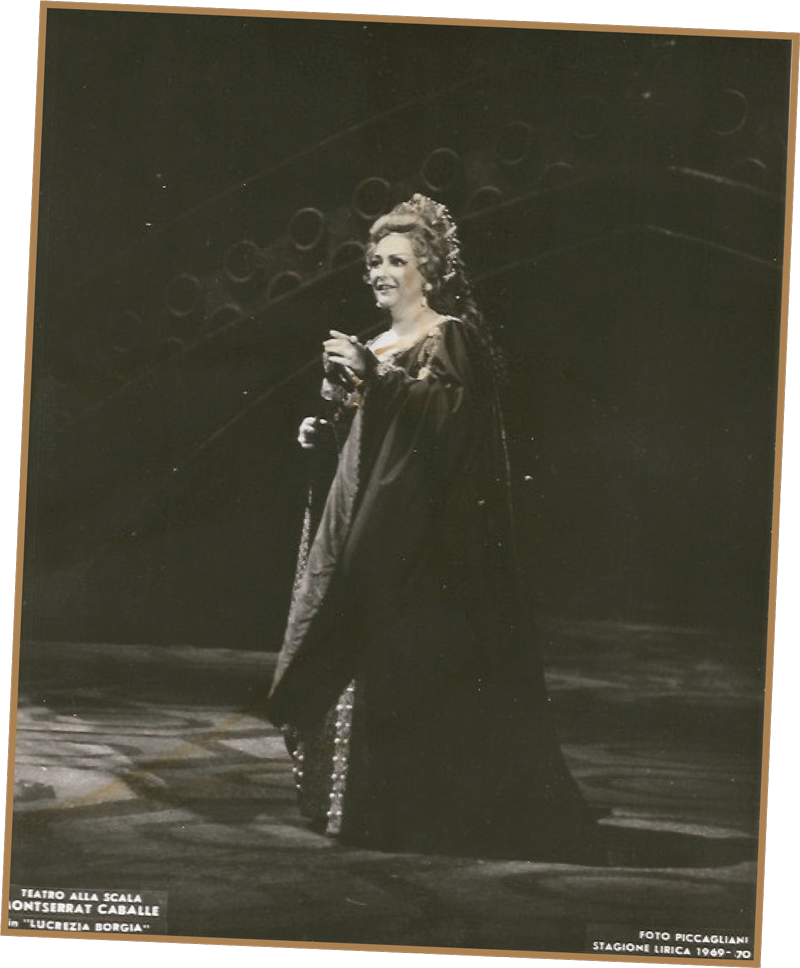
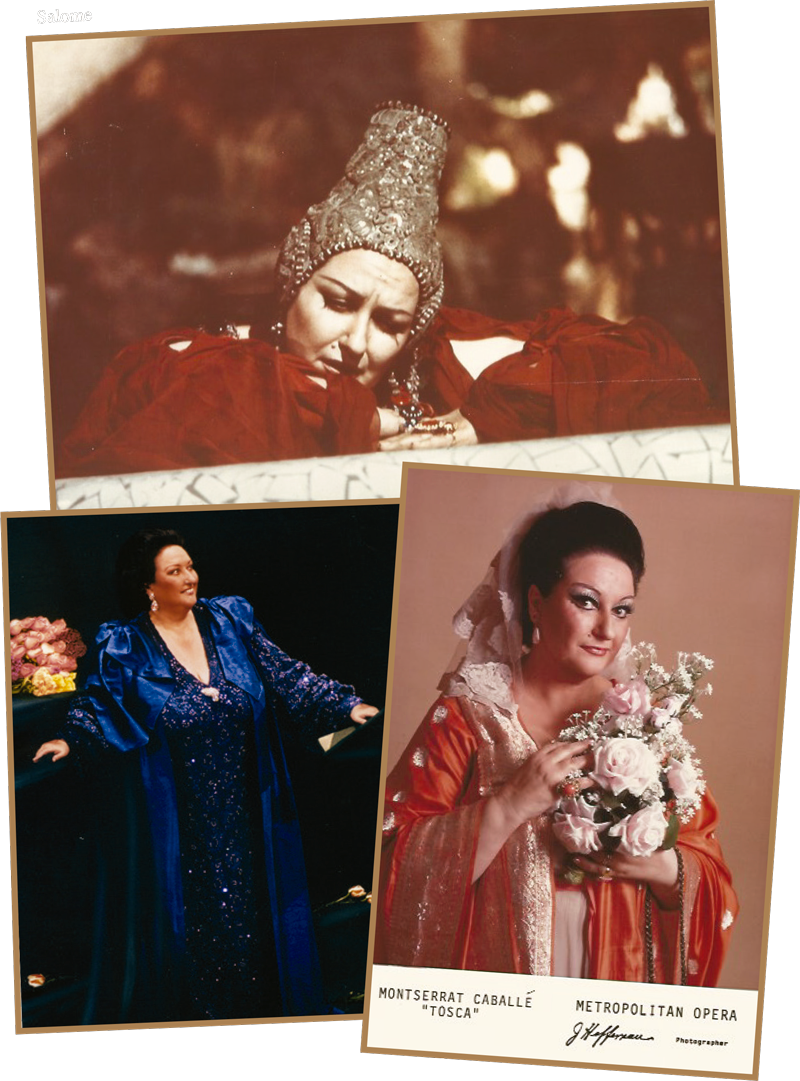
Montserrat Caballé combined her operatic performances with recitals and concerts appearing frequently at London Royal Festival Hall, Carnegie Hall and Avery Fisher Hall New York, Palau de la Música Catalana Barcelona, Teatro Real Madrid, NHK Hall Tokyo, Salle Pleyel, Salle Gaveau and Thëâtre Champs Elysées Paris, Concertgebouw Amsterdam, Vienna Konzerthaus, etc.
She also sung with the most prestigious orchestras and under the baton of Herbert von Karajan, Leonard Bernstein, Zubin Mehta, Claudio Abbado, James Levine, Seiji Ozawa, Sir Georg Solti, Sir Colin Davis, Riccardo Muti, Carlo Maria Giulini, among others.
Montserrat Caballé’s repertoire was enormous -her stage roles number nearly 100- and recorded over 80 titles.
She has sung all the great roles of repertory, from Norma to Salome, from Pamina to Isolde going through Siglinde But she is perhaps best known -and most admired for- her bel canto assumptions: the great queens of Donizetti’s tragedies found in her an ideal interpreter, capable of investing what in most hands can sound diffuse and generic music with a depth of emotional and dramatic power way beyond the range of mere coloraturas. Small wonder, then, that she became the only meaningful successor to Maria Callas in the role of Norma, an opera in which she dominated the world’s stages throughout the 1970’s.
Additionally, she has also shown a remarkable enthusiasm for tackling forgotten works. In this, she had of course continued the examples set by Maria Callas and Joan Sutherland, but had in fact gone considerably further than either.
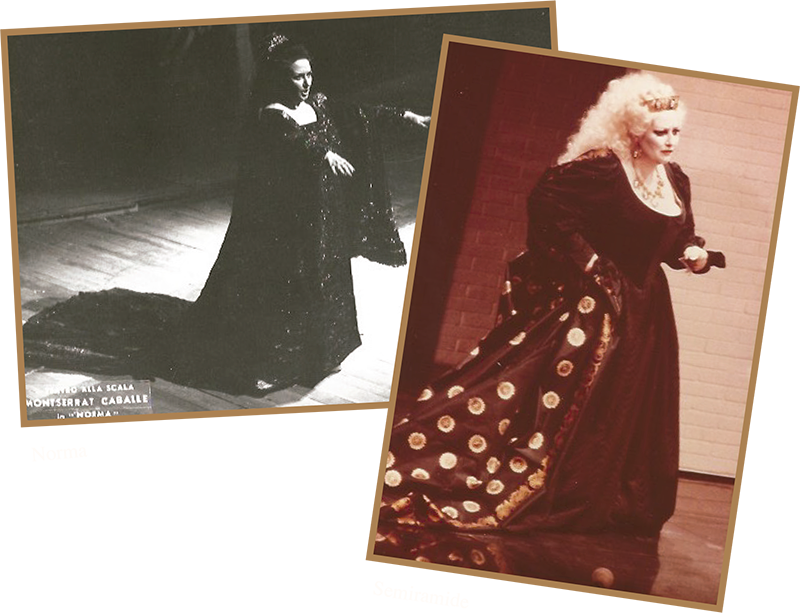
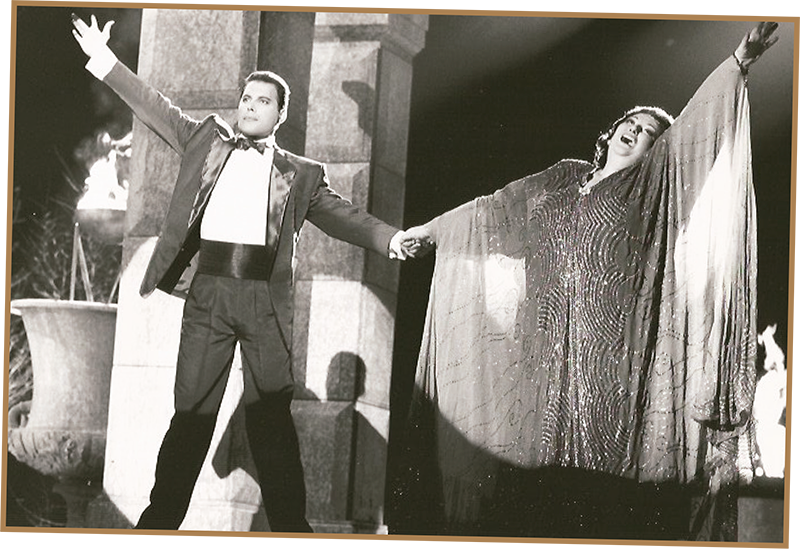
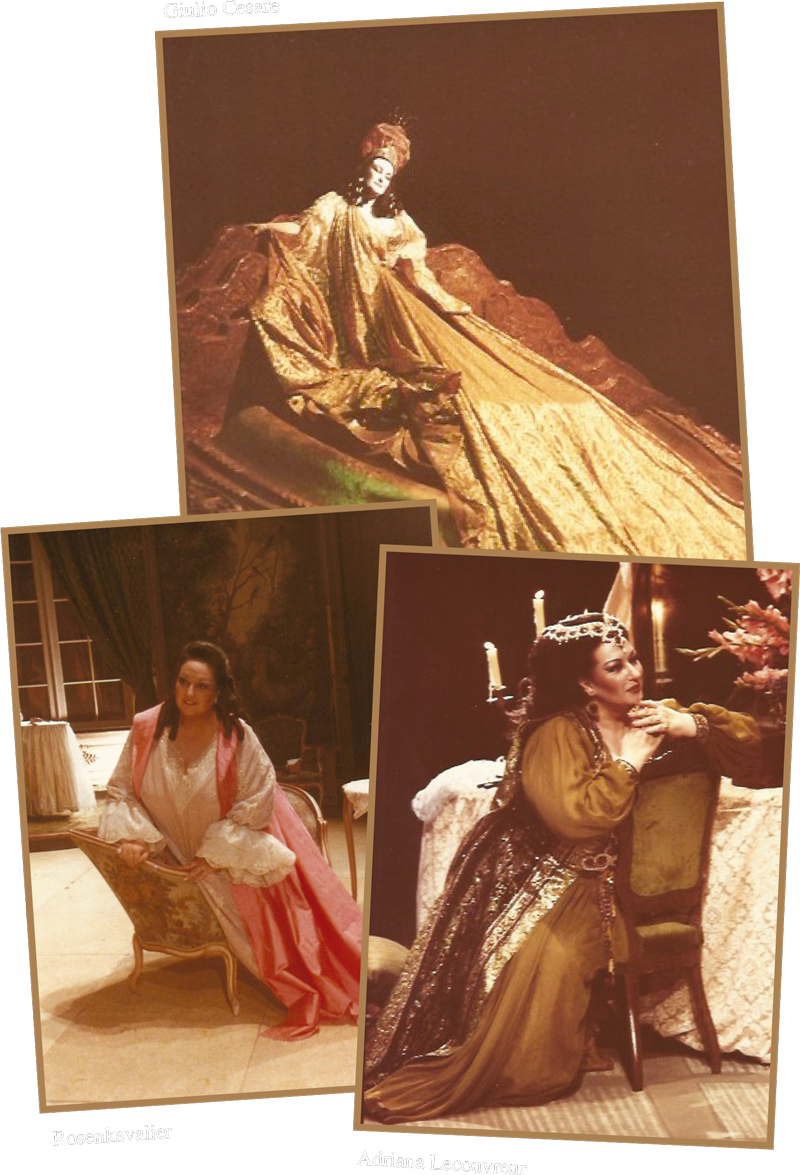
Montserrat is the holder of numerous international honours and awards including the Order of Isabel la Católica, the Commandeur des Arts et des Lettres.
From 1974 she is Honorary Ambassadorship to the United Nations and from 1991 Peace Ambassador. Since 1994 she is Goodwill Ambassador to the Unesco. She has been awarded the Doctor Honoris Causa by the Universidad Politécnica of Valencia and by the Mendeleyev University of Chemical Technology of Russia, Doctor Honoris Causa by the internationals University Menéndez Pelayo and by the University of Barcelona. The MIDEM in Cannes awarded her with a special prize, for her outstanding support to young talents. Also at the Palais des Festivals in Cannes took place the world première of the musical film “Caballé beyond music”.
Honored as well with the Generalitat de Catalunya National Prize of Culture and the Grosses Verdienstkreuz des Verdienstordens of the Federal Republic of Germany, the Honour Prize of the Academia de las Artes y Ciencias de la Música, as well as the Gold Medal of the Gran Teatro del Liceo Barcelona, she has been nominated chevalier de la Legion d’Honneur and she has received the Titel of Kammersängerin from the Vienna Staatsoper, she received as well the Russian Friendship Order and the highest condecoration of the Italian Republic “Dama de la gran croce”.
